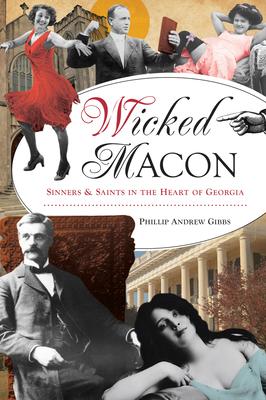Author Phillip Andrew Gibbs guides readers on a tour of Macon's seedy underbelly. By the beginning of the twentieth century, Macon was coming of age. Numerous industries, banks and retail businesses dotted the city's landscape, and magnificent Greek Revival and Victorian homes graced the tree-lined streets of its affluent neighborhoods. For those who enjoyed the arts, there was the Grand Opera House which hosted operatic and theatre productions. The city was also home to two institutions of higher learning. To residents and visitors alike, Macon seemed to be a flourishing, sophisticated city well grounded in strong spiritual and moral principles. But there were flies in the ointment. Much to the dismay of the city's ministers and educators there was a vibrant sporting life in Macon. Pool halls, gambling houses, and saloons operated well within sight of the front steps of the city's churches. Worse yet, the city council had established in the early 1900s a red-light district known as Tybee that operated freely without interference from local authorities.

Wicked Macon: Sinners & Saints in the Heart of Georgia
Author Phillip Andrew Gibbs guides readers on a tour of Macon's seedy underbelly. By the beginning of the twentieth century, Macon was coming of age. Numerous industries, banks and retail businesses dotted the city's landscape, and magnificent Greek Revival and Victorian homes graced the tree-lined streets of its affluent neighborhoods. For those who enjoyed the arts, there was the Grand Opera House which hosted operatic and theatre productions. The city was also home to two institutions of higher learning. To residents and visitors alike, Macon seemed to be a flourishing, sophisticated city well grounded in strong spiritual and moral principles. But there were flies in the ointment. Much to the dismay of the city's ministers and educators there was a vibrant sporting life in Macon. Pool halls, gambling houses, and saloons operated well within sight of the front steps of the city's churches. Worse yet, the city council had established in the early 1900s a red-light district known as Tybee that operated freely without interference from local authorities.